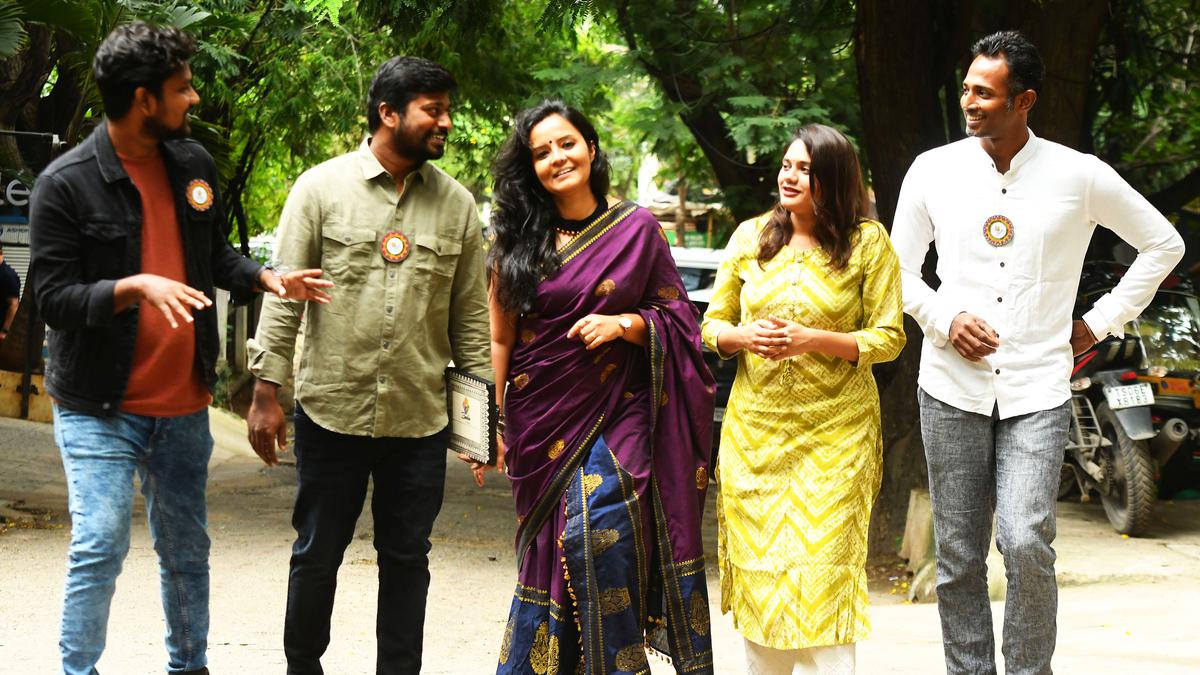
Reuse, recycle. Hyderabad’s The Bartan Company tries to minimise wastage, one event at a time
The Hindu
Reuse, recycle. Hyderabad’s The Bartan Company, founded by Nidarshana Saikia Das, tries to minimise wastage, one event at a time by avoiding plastic plates, glasses and cutlery. Waste is segregated at source and either recycled or composted
Software developer Suguna Alluri was keen that her wedding be a low-carbon-footprint event. She did not want to send mounds of waste to the landfills. Weeks before her wedding in October 2021, she looked to collaborate with green warriors who could help with waste management. Looking online she learnt about The Bartan Company (TBC). Founded in 2018 as a cutlery bank, TBC grew into an entity that helps people incorporate eco-friendly practices in events. They hit it off and began planning. Seed paper was used for wedding invitations, and reusable or biodegradable plates, glasses and cutlery were used at the water and food counters. Waste was segregated at the source and either sent for recycling or composting. Two years later, Suguna looks back with pride at how the guests appreciated the move and later shared images of plants that grew from the seed paper. “It is possible to minimise wastage if you invest time to plan an event,” she says.
For TBC, which wondered if the hesitation towards reusable plates and cutlery during the pandemic would lead to the organisation becoming obsolete, the call from Suguna was a chance to regroup and swing into action.
Nidarshana Saikia Das, TBC’s founding member, says she thought they would not function again. “Everyone was concerned about possible contamination through surfaces. No one wanted to take a chance.” In addition, one of the team had moved to Bengaluru, while another had returned to a corporate job. Nidarshana, who had quit her marketing career earlier, was in no mood to take the corporate route again. She founded Maati Eco Gifts, an entrepreneurial venture to source eco-friendly gift products and thus ensure a revenue stream for TBC.
Meanwhile, Suguna knew she was taking a risk and was anxious since some of her family were sceptical. She recalls how things fell into place one by one. Steel cutlery and biodegradable plates made of sugarcane bagasse were used wherever possible. Steel glasses and water bottles were used at the water counter. Cloth pouches were used to pack return gifts, waste was segregated and guests were encouraged to drop food and biodegradable waste into compost bins with coco peat. The effort paid off with appreciation from the guests.
“Everything we do is a response to demand,” says Nidarshana. Initially, TBC rented plates and cutlery; they grew into a consulting service and began collaborating with stakeholders to organise weddings, birthdays, anniversaries and housewarmings.
“The idea is to reduce plastic wherever possible actively,” says Nidarshana. TBC nudges caterers to bring reusable plates and glasses. “It is not easy, since they will need a few more people to ensure the washing and recirculation of plates and glasses. Some caterers oblige.” Nidarshana adds that the clients who seek them out also opt for simpler decor that ensures less wastage. Florists are encouraged to bring reusable props wherever possible, avoiding polystyrene boards to pin the flowers. “In some cases, the flowers stay good for almost a week. A few florists reuse the flowers for other events at a lower cost. That also helps reduce wastage.”
At the end of every event, the biodegradable waste is composted on-site in pits with the permission of the venue managers. If space is limited or the venue partners are unwilling, the waste is transported in drums to a predetermined location known to the client or TBC members for composting. TBC also collaborates with Waste Ventures and Ahuja Engineering Services for waste processing.





















 Run 3 Space | Play Space Running Game
Run 3 Space | Play Space Running Game Traffic Jam 3D | Online Racing Game
Traffic Jam 3D | Online Racing Game Duck Hunt | Play Old Classic Game
Duck Hunt | Play Old Classic Game
